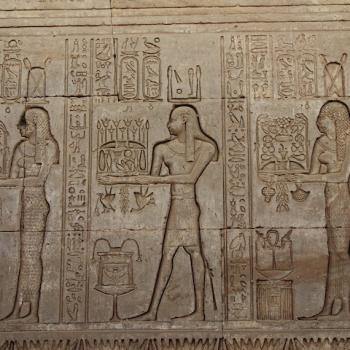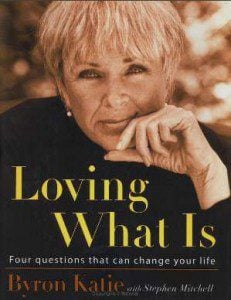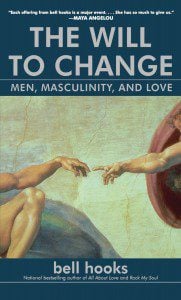I love that the Revised Common Lectionary includes the Magnificat as the alternative Psalm reading for the third Sunday of Advent. Mary was bold to sing about God, “You have brought down the powerful from their thrones, and lifted up the lowly / You have filled the hungry with good things, and sent the rich away empty.” And this Advent season, I invite to consider, “How is God calling you to sing new lyrics to Mary’s song?”
How are hope, peace, joy, and love being birthed in you this Christmas?
How is the Spirit moving within you such that in the new year your soul may ever more fully magnify God?”
Mary’s song, often called the Magnificat, is a welcome contrast to the hyped-up speed of the commercialism that is too often the dominant theme in our culture during the Advent season. Her lyrics are an invitation to approach Christmas with a slower, more contemplative pace.
Her song contains shockingly radical words, unabashedly placed at the beginning of Luke’s Gospel. How differently might we understand the meaning of Jesus’ birth if Mary’s lyrics were more well known? Too often, we skip or skim Luke’s first chapter to reach the more-beloved chapter 2 (especially in the King James Version), which begins with the census (“And it came to pass in those days, that there went out a decree from Caesar Augustus, that all the world should be taxed”) and continues until the shepherds “find the babe wrapped in swaddling clothes, lying in a manger.”
The Christmas story has, overtime, too frequently come to have a sense of ‘preciousness,’ of saccharine sentimentality, of almost sickening sweetness as if you had eaten all the candy in your stocking all at once on Christmas morning. When this super-sweetening of the story happens, we can miss the radicality of the claim that God is found, not as the royal child of a queen, but as the son of an unmarried peasant: “for you have looked with favor upon your lowly servant.” As a unwed teenager in a religiously-conservative small town, how stunning is it that Mary finds the courage to sing, “from now on all generations will call me blessed. For you, Mighty One, have done great things for me, and holy is your name. Your mercy is for those who fear you from generation to generation.”
Even more importantly, Mary’s song is an overture to the Gospel of Luke as a whole. Her lyrics set the tone for Jesus’ radical and controversial ministry that is to come:
You have shown strength with your arm;
You have scattered the proud in the thoughts of their hearts.
You have brought down the powerful from their thrones, and lifted up the lowly;
You have filled the hungry with good things, and sent the rich away empty.
In contrast, the Christmas season leaves too many still hungry, and too many even further in debt.
To ponder further how Mary’s words offer a life-giving alternative for celebrating Jesus’ birth, I invite you to listen to a musical rendition of Mary’s Song, which is appropriate since this scripture is, after all, a song. Originally, what we know today as Mary’s song was likely an independently-existing canticle inspired by many different verses from the Hebrew Scripture. Indeed, there are multiple scriptural echoes in every line of the Magnificat. Luke likely used this song in his Gospel because it provided such a powerful thematic prelude for his Gospel.
Although we do not have the original tune of Mary’s song, the lyrics of the Magnificat have inspired many magnificent productions, including versions by Vivaldi and Rutter. I invite you to listen to my current favorite version by Johann Sebastian Bach. (The 20th-century composer Mauricio Kagel is credited as saying, “musicians may not all believe in God, but they all believe in Bach.”)
Bach’s full version of Mary’s song runs almost 26 minutes; so, for now, I invite you to pause only long enough to listen to the three-minute first stanza, which includes the Latin words, “Magnificat anima mea Dominum,” which translates to “My soul magnifies God.” As you listen, I invite you to be open to the transformative power and energy of the music as way of beginning to ponder how Mary’s words can offer us a more life-giving alternate for celebrating Jesus’ birth:
http://www.youtube.com/watch?v=Bo1x-62WmrI
The most prominent word in Bach’s version of Mary’s song is the word magnificat, which translates as the word “magnifies” in the open line “My soul magnifies God.” This experience of Mary’s soul magnifying God, reminds me of a related post about Mary’s open-hearted prayer to God from earlier in Luke 1, “Let it be”: Mary was able to magnify God because she was humbly open to the unexpected new life God was birthing within her, inviting us to echo her pray, “Let it be. Let it be. Let it be.”
Similarly, Mary magnified God because she was willing to partner with God to bring about a “performance of those things which were told.” She was willing to parter with God in that “divine dance of the universe of love for it’s own sake.”
Furthermore, Mary’s enthusiastic song in response to Jesus’ impending birth invites us to consider the question that we are invited to ponder throughout this Advent season: “What Christianity would look like the focus were as much or more about birth instead of death, human flourishing instead of suffering, and this world instead of the next?”
As this post draws to a close, I invite you to listen to the opening stanza of Bach’s Magnificat once more. Afterward, I invite you to pause for about a minute or so of contemplative silence (whatever length of time feels right). As you listen to Mary’s song, allow your soul to be uplifted by her open-hearted willingness to partner with God in birth and new life, in dancing and flourishing in this world.
In the silence that follows, ponder how Mary’s willingness to magnify God (how her boldness to sing with confidence “You have brought down the powerful from their thrones, and lifted up the lowly; You have filled the hungry with good things, and sent the rich away empty”) may be calling us toward new, life-giving ways for celebrating Jesus’ birth.
How are you being called to sing new words to Mary’s Song (lyrics of hope, peace, joy, and love) this Advent and in the new year so that your soul might ever more fully magnify God?
http://www.youtube.com/watch?v=Bo1x-62WmrI
Magnificat!
Notes
1 For a table illustrating the Hebrew Bible “Background of the Magnificat,” see Raymond E. Brown, The Birth of the Messiah: A Commentary on the Infancy Narratives in the Gospels of Matthew and Luke (The Anchor Yale Bible Reference Library) Updated Edition (1993), 358-359. On the composition history of the Lucan Canticles, see Brown, 346-348.
2 For the Bach reference, see Thematics: New Approaches, edited by Claude Bremond, et al, 159.
3 For an extended reflection on a Christianity focused on birth and flourishing in this world, see Grace Jantzen, Becoming Divine: Towards a Feminist Philosophy of Religion,2.
For Further Study
- Carl Gregg, “Progressive Christian Reflections on Advent,” available at http://www.patheos.com/blogs/carlgregg/2011/11/progressive-christian-reflections-on-advent.
- Carl Gregg, “Theology in a 13.7 Billion-Year-Old Universe: Matthew Fox, Original Blessing, and Creation Spirituality,” available at http://www.patheos.com/blogs/carlgregg/2011/11/embracing-christianity-and-evolution-matthew-fox-original-blessing-and-creation-spirituality. An excerpt: “What would Christianity look like if the focus were Original Blessing, not Original Sin; Creation Spirituality, not the Fall/Redemption story; and social justice, not individual perfectionism? How do we do theology in the twenty-first century that accounts for scientific insights in general and the 13.7 billion-year-old ‘Universe Story’ in particular?”
The Rev. Carl Gregg is a trained spiritual director, a D.Min. candidate at San Francisco Theological Seminary, and the pastor of Broadview Church in Chesapeake Beach, Maryland. Follow him on Facebook (facebook.com/carlgregg) and Twitter (@carlgregg).
















